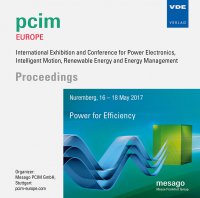On Energy Balancing for a Full-Bridge MMC with Distributed Energy Storage Devices
Konferenz: PCIM Europe 2017 - International Exhibition and Conference for Power Electronics, Intelligent Motion, Renewable Energy and Energy Management
16.05.2017 - 18.05.2017 in Nürnberg, Deutschland
Tagungsband: PCIM Europe 2017
Seiten: 8Sprache: EnglischTyp: PDF
Persönliche VDE-Mitglieder erhalten auf diesen Artikel 10% Rabatt
Autoren:
Henke, Gerrit; Bakran, Mark-M. (University of Bayreuth, Germany)
Inhalt:
In the currently predominant AC-Grid, energy reserves are provided by the inertia of rotating synchronous generators. In a potential DC-Grid, there is no such inherent energy reserve and thus additional energy storage (ES) is required to ensure grid stability. The Modular Multilevel Converter (MMC) is an emerging technology for HVDC-Grid applications and offers a convenient way of connecting ES to the grid. Short strings of batteries or supercapacitors can be integrated directly into the MMC submodules, creating an ES enabled MMC, which reduces the susceptibility of the system to an individual ES cell failure. Since connecting ES to the submodule cells requires additional electrical devices (switches and/or inductors), reducing the number of submodules with integrated ES can significantly reduce the additional cost for ES integration. In most research conducted on this topic so far, the existence of ES in all MMC modules is assumed. However, the amount of ES in an ES enabled MMC can be reduced by utilizing circular currents to achieve energy balance between submodules with and without integrated ES. By injecting circular currents, energy can be transferred between any phase arms, and phase arms with ES can supply those without. The focus of this examination is the additional semiconductor load caused by the circular currents. It is shown that there is only a very small increase in the semiconductor load, when only a few arms supply the whole output power.


